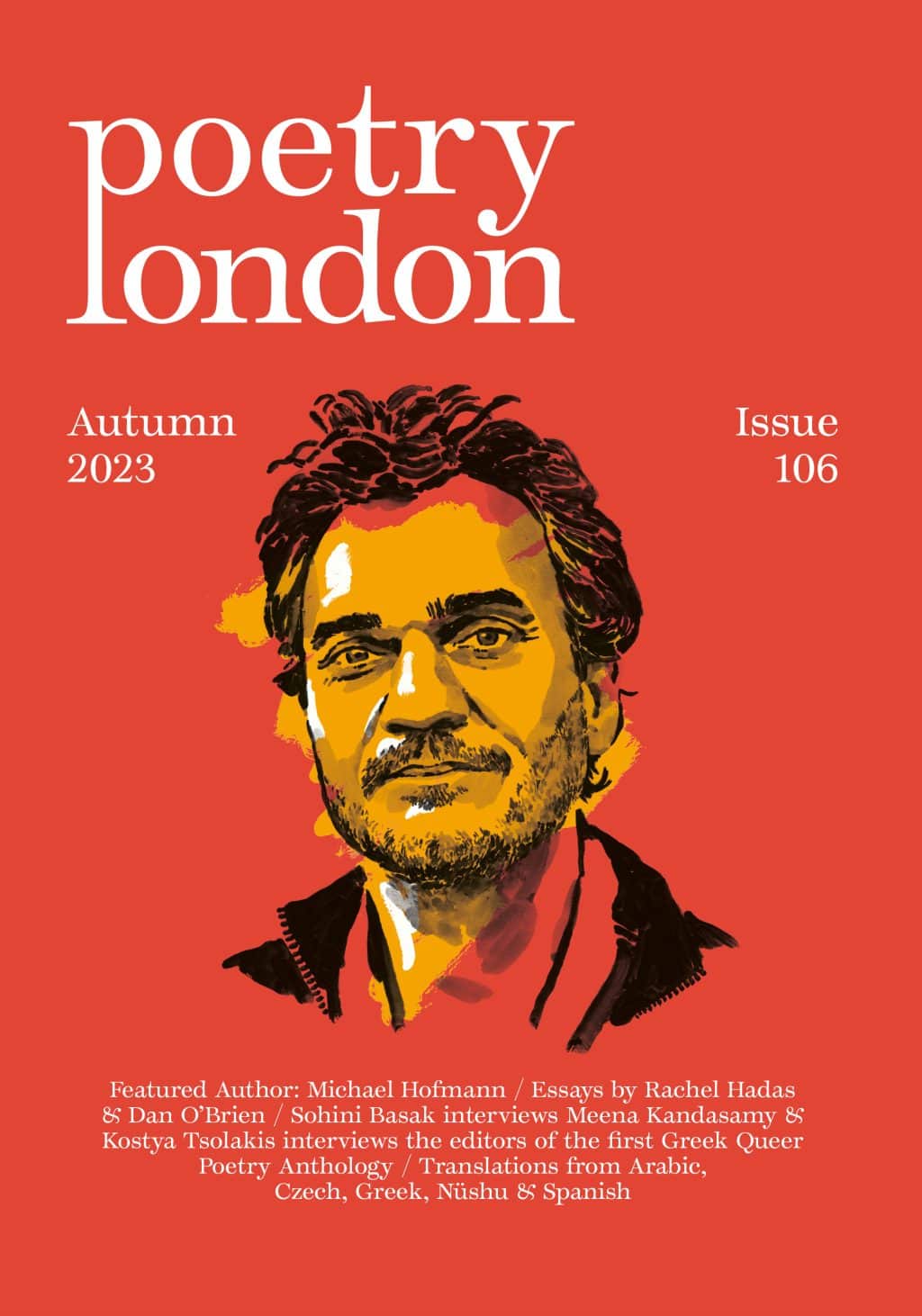Competition 2015: Judge’s Report – Glyn Maxwell
I came to the judging for the Poetry London Competition still somewhat reeling from judging the (unfiltered) National Poetry Competition. Not that I hadn’t found some keepers and gems in that process – just that there were times in the forest of thousands when I seemed to be listening to one sad conflicted monster-poet over and over again, like It and I were the only two creatures left here. The good poems would rouse me thankful from this primeval trance. This time round there was more thankfulness than trance. I’m delighted by the range and quality of the seven poems I’ve chosen. I commend very highly these four:
Kit Buchan’s ‘the crooked biography written in jail’ seems at first a five-finger exercise – literally, the forced dactylic is its prison diet – but how well-turned and winning are these lines, what sheer vitality and wit they possess, and what an intriguing biog we trail down the page. Prison visit as quality stand-up.
With similar formal acuity Martha Sprackland’s ‘Domestic’ characterizes a broken relationship as helplessly frozen syntax teetering on that very word – as – everything that’s just happened in a nameless quarrel ‘as’ something faraway, free of it, clear of it, like smoke or sky. Numbness of spent emotion, wonderfully anatomized: ‘Glass as broken glass.’
Mark Haworth-Booth’s ‘I’ll trade you’ could be a love poem, or an inner monologue, as the stuffed achievements of the Present forlornly bargain with the unattainable lovely Bygone. There’s something joyfully redemptive about a poem shaped like a business proposal that nonetheless leaves the imprint of a prayer.
Abigail Parry’s ‘The Negative’ is a blurry silent movie of a poem. Its syntax is pure anxiety of travel – abrupt decisions, lights that loom up, checklists, clutter, epiphany followed by gaping loss, in a form that offers regularity then withdraws it, suddenly indenting or breaking – an odd currency not to be trusted, poem where your money’s no good.
Third place goes to Paul Carney’s ‘A Room in the City’, the rich and detailed testimony of age sinking into remembered youth. Its details are its riches, for even the happiest life might end alone with its things clustered around it. How deftly and poignantly this poet puts his finger on it:
On better days, I go downstairs for dinner;
tomorrow we shall have paper hats – it’s Christmas
on television
The exhilarating skill here is using ‘shall’ and not eliding it to ‘we’ll’, which would make the line pass too fast. Instead we hear the sound of age pleading with time, prolonging the thought of tomorrow in the thought of today. ‘The clowns are crawling on the roof/and laughing in the chimney’. I keep noticing Paul Carney’s poems, and I believe you will, too.
There’s courage and there’s danger in subtitling a poem ‘After’ something else (especially a monument like Edwin Muir’s ‘The Horses’) but Jamie Walsh meets the challenge superbly in ‘The static’, which wins second place. Films and comics and CGI have made the post-apocalyptic afterworld a familiar den where we can kind of put our feet up, but here the terror is reclaimed with an achingly sad metaphor of white noise, as survivors try to find matter or meaning – ‘children swimming’, ‘a fast tap drip’, ‘a playground in the far distance’ – in what can’t be all of them, so is probably none. Yes it can serve as a metaphor for poetry, or even life – all fine poems tend to – but I like it best as a shot taken with dead aim, a cold clear homage to Muir, or a bulletin from Byron’s ‘Darkness’.
My first-placed poem of these seven wonderful pieces is Geraldine Clarkson’s ‘His Wife in the Corner’, It’s structured simply enough – some disappointing bout of adult sex caving into a teenage memory of inadequacy and fear, but its graces are in the joins and seams, how physical actions connect with mental ones, how one thing leads to the thing you don’t see coming, and it’s also high time some chortling literati gave Good sex writing awards:
When he had finished offering me the world
and stretched up to switch on the light
is a brilliantly compressed image of post-coital man-during-affair, looking back
at his handiwork, me lying there replete,
a jetted calf, pinioned
where ‘handiwork’ says everything we need, ‘me’ and ‘replete’ seal the deal – I mean now she’s only one vowel in his life – and sex is rather scarily suggested by the final image, the wife in the shop that isn’t open, ‘rocking violently,/her gorgeous green lapels rising and falling with mirth’, the smug and fallen adult world gleeful at the futile innocence of the young.

